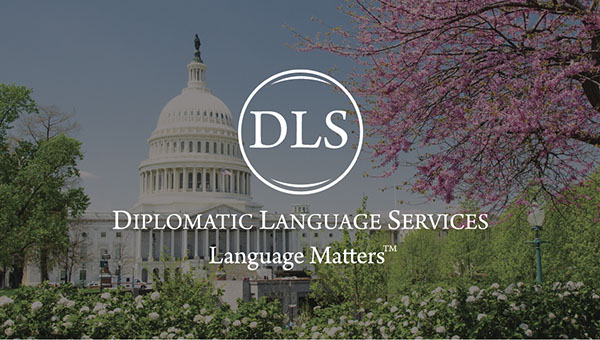Language training isn’t just about learning grammar or vocabulary. In the context of national security and diplomacy, it’s about preparing professionals to operate effectively in multilingual, high-pressure environments. At DLS, we’ve seen firsthand how essential these skills are, not just for communication, but for trust, clarity, and real impact.
Language as a National Security Tool
Language plays a much larger role in national security than most people realize. Whether it’s intelligence gathering, conflict resolution, negotiations, or strategic planning, communication is at the core.
When someone in the field can understand and speak the local language, it changes everything. It allows for quicker decision-making, better cultural awareness, and more accurate assessments of complex situations. And perhaps most importantly, it builds trust with local communities, partners, and stakeholders.
Diplomacy Relies on Communication and Context
Diplomatic work depends heavily on the ability to communicate clearly and respectfully. But it’s not just about translating words. It’s about understanding cultural context, tone, and subtext.
When diplomats or foreign service officers speak the local language, they are able to connect on a deeper level. This shows respect and signals a willingness to engage sincerely. These moments of human connection often build long-term partnerships and resolve conflicts more effectively than policy alone.
Supporting U.S. Government and Global Missions
DLS has supported language training for a wide range of U.S. government agencies, international organizations, and contractors working in multilingual environments. We understand that the needs of national security and diplomacy go beyond textbook learning.
Our instructors focus on mission-driven instruction, often tailored to real-world scenarios. We train in critical languages such as Arabic, Chinese, Russian, Farsi, Korean, and others. Lessons include practical vocabulary, cultural context, and specific terminology used in government, military, and diplomatic settings.
We also help learners prepare for proficiency tests like the DLPT and OPI, while offering maintenance programs to keep skills sharp over time. Our goal is not just to teach a language, but to help professionals become confident and effective in their roles.
Why Cultural Understanding Matters
Cultural understanding is essential in global operations. It can influence everything from how meetings are conducted to how messages are received. Without this awareness, even well-intentioned communication can fall flat or lead to confusion.
That’s why cultural context is integrated into all our training. We help professionals learn not just how to speak, but how to listen, observe, and adapt. These are the skills that make a difference in the field.
Preparing the Next Generation
There is a growing need for language-capable professionals in national security, diplomacy, and international cooperation. But the pipeline of qualified speakers is limited. DLS is committed to helping close that gap through effective, tailored training.
We work with everyone from early-career professionals to experienced diplomats. The common thread is a shared goal: language learning with purpose and impact.
We are proud to support the individuals and agencies working to keep the world safer, more stable, and better understood.




